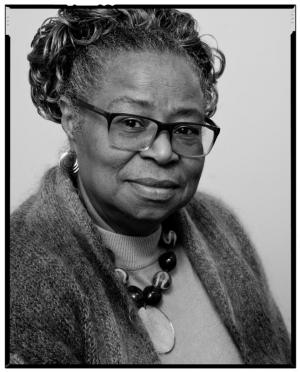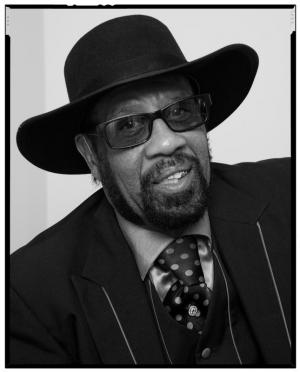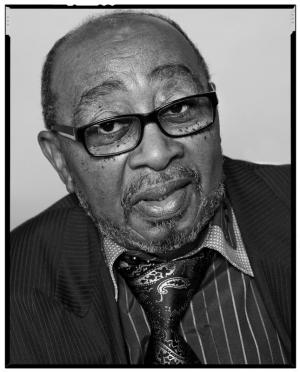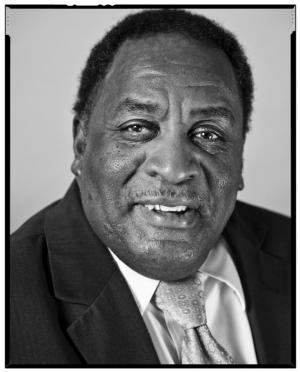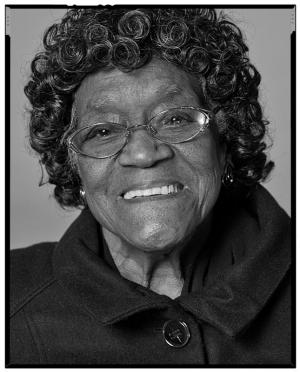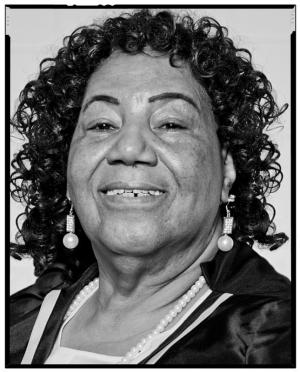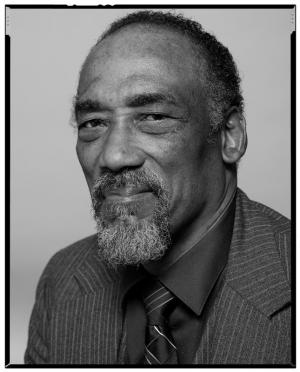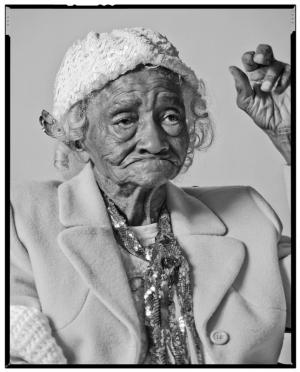Patience and perseverance
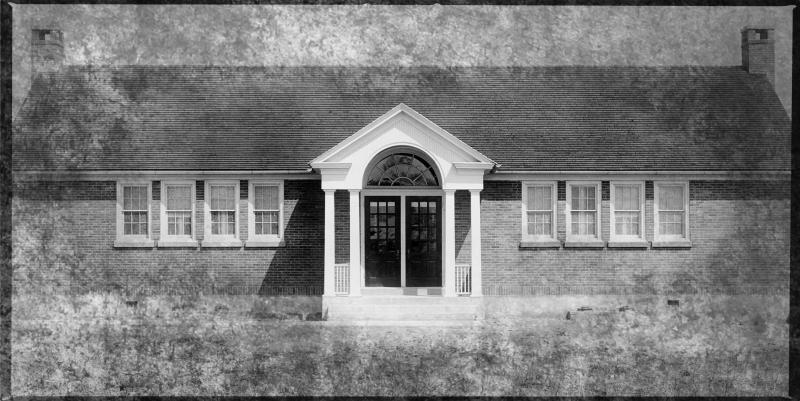
During the gala for the Richard Allen Coalition, people were asked what they remembered about the school and how the Richard Allen School has affected them. One of the most vivid - and most repeated - memories was using handed-down books, which still is upsetting to many as they recall those days. Those who attended the school have fond memories of their instructors and the community that surrounded them during that time. Once integration was mandated, many things changed, and that was not always considered a positive effect. The teachers were gone and without them the community withered. Many students were shunned and worse at the new, integrated school, making it difficult for them to learn. The memories of the Richard Allen School live on and are cherished by many. As older alumni pass on, the Richard Allen Coalition is attempting to record as many memories as possible so others can learn from the elders.
“Things do change but they are changing real slow; you’ve got to have good patience.” - Harry Crapper
PROFILES
Jane Hovington
When I arrived in Georgetown in the ’80s, Richard Allen was no longer the black school; it was a kindergarten. I had a day care next door. I didn’t know it’s significance. A few of us were trying to get it made into a community center in about 2009. But things happened and it became an alternative school in the Indian River School District. I became involved working with the kids there in a program called Character Academic Motivational Program.
When I found out they wanted to destroy the school, that is when we got the community together and formed the Richard Allen Coalition. We were determined.
In the process we started learning more about the history. When I listened to the people at the historical marker ceremony, and what that school meant to them, my opinion changed. It wasn’t just a building to keep, this was LIFE, it was African American History of Georgetown like you would not believe.
When I found out about the Stevenson families, the Mifflins, the Ingrams; I knew we could not let it die. I wish those walls could talk.
So much history here in this community that has founded and built each individual. Some were able to attend Jason [High School] and it continued to form them. I don’t know anyone who came out of Jason without character and dignity.
But you saw that there was strength.
I know they felt integrating the schools would give them the ability to get a better education, but I wonder sometimes. Because the quality of the education they got at Richard Allen and Jason is not to be met. Not only did they get book knowledge, but they were taught character building.
There were so many things we went through in school and it was a learning experience. It made us stronger, because it gave us the mind-set that we were a cut above because we endured what they endured and more, and we still continued on - we proved who we were. That was my motivation. We had to fight for our rights either physically or mentally. The battle has given us a wisdom; normally we would react to things, but we can step back and look at a situation, and we are able to be actively motivated, to use our minds instead of our fists.
Bishop Roland Mifflin
Coming up in Georgetown, I got the nickname Doffie from my cousin. I grew up in the Mifflin house across the street from Richard Allen School, and as a kid, I would look out the window and see my aunts and uncles going to school and playing ball after school.
I was excited when it came time to go to school because they were so happy about being there. The teachers that were there, they were very interested in us. They made us accountable to do the right thing; their jobs were to educate us so our lives would be better than our parents’.
I really apprecitated Mr. Evans. He was a hard teacher. Sometimes I think he overdid himself, but he was doing something that I could not understand at the age that I was, to make me better. He was the one who saw a gift in me and helped me in the baseball field, and he really pushed me to excel. The older people in Georgetown really helped me with the things I didn’t understand.
Being in Georgetown, we were only privileged to do certain things, at a certain time. I couldn’t go uptown after a certain time - they had a curfew. I would ask mom, and being a praying woman, she would share with us that it wasn’t right, but God knows all things, and we have to do the RIGHT thing. Then God will do the right thing. It would still anger me, and I still didn’t understand.
It wasn’t until later in my teenage years when I went to Jason High School that I would begin to see that we had the same support from our teachers. You couldn’t stay home from school. They would come and find you. And find out why you weren’t there. They had a white lady - I think her name was Mrs. Tom - she had a blue car, and she would ride around the neighborhood, and we knew when she saw you, that she was taking you to school. We would try to hide from her. When we missed too many days, the teachers would come to our house.
Because of Georgetown and what I learned, there were some Caucasian people who saw something in us also, and they gave us a chance. I tell the minorities not to hold on to the prejudices. There are some good people and some people who hold on to what they are going to hold on to, but if we keep doing the right thing, we can change the hearts of some.
When I went to ‘Nam, we had a white sergeant in the black ground troop. We were told to go out and protect the base camp, but this sergeant did not want to go. You could see the fear all over him, when we went out with him, we supported him, we were there for him.
When we got back, he shared something with us. He said, “I thank you guys. My father raised me to believe that there was something wrong with you people; I wasn’t supposed to have any communication with you.
“Because you were black, you didn’t fit in our circle. I have to go back and tell my dad that the teachings he was giving us was wrong, because these black men fought for me, and would have died for me. I saw a lot of blood from all color of skin, and it was the same red.”
Carolyn Morris Mitchner
I remember my teachers Miss Mason and Miss Moore and Mr. Evans. I had Miss Mason in the first and second grade. I had Miss Moore in the third and fourth and Mr. Evans in the fifth and sixth grade. I don’t remember my first day! It’s been so long. Almost 70 years!
Harry Crapper
What I remember most about Richard Allen School was we always got books after the other school was done with them, and the biggest part of the time there were no backs on them or half of the pages were torn out. We had real, real good teachers. I don’t care what went on, the teachers always worked with us. Out of Richard Allen School came lawyers, judges, doctors, which was amazing because we never had good books. We didn’t know what it was to have a complete and full book with a back on it.
Every Thursday we used to have a lady who came to our school to teach us art. She wanted us to draw the person across from us; I didn’t like that, or the way she had it set up. I mean, there were light-skin kids and dark-skin kids, and my god, you had kids grabbing purple! Georgetown was a good little town; it was a small community. From that small community, we really grew. There isn’t a black business in Georgetown - there used to be at least 10. I went to William C. Jason, and it didn’t matter how smart you were, there were no jobs for us.
Some went to Dover or Wilmington or Philidelphia. I have a cousin who tried his best to be a lawyer. He couldn’t pass the bar. He finally went to California and passed, and now he has his own law firm. In the ’70s they wouldn’t let him pass the bar. I now have friends who are lawyers here, and things do change, but they are changing real slow; you gotta have good patience.
Percell Parker
I am one of the members of Prospect AME Church. I have been doing a little history on the church and how it relates to Richard Allen School and the coalition. (The founder of the church is Richard Allen.) Our church was started in 1839. The first school for black children was actually Prospect AME Church, and the teacher was run out of town by the people in Georgetown because they didn’t want the black kids to be educated (mentioned in the book “16 Miles from Anywhere”). I am ecstatic about the history in this area. I am a transplant here, but I want to keep the history connected. I would love for all the people in this area to know the history of the black people here, like the Negro Baseball League. Some are passed away; so much went on in this area. Take for instance Bryan Stevenson, bishops, ministers, lawyers, judges have come from Prospect AME Church. So that church has been very vital in this area, too, in raising young children to make a mark for blacks in this area.
Gloria Duffy
I didn’t go to Richard Allen, but around ’68 I went to Millsboro School #204. I was there from K to sixth grade, and I was going to go to Jason, but that is when they started integration, and it became Indian River School District. When I went to the all-black school it was more of a community; we knew everyone and all the teachers, and they were all involved in the community. We had social events that were always at the school.
When they integrated, the first year I was very nervous. The idea was that we were different. I remember the teachers said I was very quiet, but it was because it was a whole new environment. I remember a couple of the teachers were surprised when I received good grades on the report card. It was because I had a good education. It was scary, but I had good friends and also had people who called names. That was a hard part, too. My mother used to tell me just keep your head up. It was a challenging time.
Vivian Burton
I remember Miss Betty Mason was my first- and second-grade teacher, and Miss Moore was third and fourth, and of course Mr. Evans was fifth- and sixth-grade teacher. They were very nice. See, I was very quiet and shy, wouldn’t say much, Miss Moore was very special. I recall the playground. See, we wore dresses, we didn’t wear pants. My grandmother lived across town near Perdue. Me and my sisters had to walk from there to the school because we didn’t ride the bus. Sometimes it was bad weather, but I really enjoyed it in the spring and summer because if it rained I could play in the water and mess around on the way home.
One thing I do remember very well. We had a large boy, big for his age, he would always run when it came time to get needles. He was very scared of getting a needle. He would carry on the most.
Ira Roach
I attended 1956-61. I had very good teachers. Every day, Mr. Evans would take us outside so we could have a softball game. He taught us soccer, even back then, even if it rained they would draw a line to run the water off the field. I played shortstop and second base; a lot of times he would pitch for us and play right along with us. Back then it seemed like the teachers cared more. They made sure you got an education. They made sure you learned your basics - math, spelling, English.
We used to get lunches from Georgetown High School; we would have sandwiches and soup and a pint of milk and it only cost 25 cents then, the good old days. We lived on Adams Street and walked to school every morning. Most of the teachers were not from Georgetown, so we didn’t see them around town. I was a very good student, got good grades. My first-grade teacher said I was at the top of the class at one time, but as you get older you mess around more and the grades slip. I then went to Jason where I ran track and played football and baseball. I was the last graduating class of Georgetown High School before it changed to Sussex Central School District. I went on to Sussex Vo-Tech and took up milling cabinets, then worked as a grocery store manager for 41 years.
Marie Melvin
I went to Richard Allen School and went on to finish eighth grade. I got passed to the ninth grade, but I didn’t get to study that year. I had to quit because I became pregnant, so once summer vacation came in, that was it for me. I ended up having nine kids. One of the teachers took us on a trip to Rosedale, and I like to got drowned, and he had to save me! I used to do a lot of fighting with the boys. A boy named Billy used to fight me. He had to show the others that he was gonna fight me.
Clara Ingram
Yes indeed, I have a memory of going to Richard Allen School. We had two rooms, and I remember all the dirty books and all the worn material, and the white kids got the new ones. I can see it now, them bringing in those dern dirty books. It was terrible.
Peggy Trott
I started there in 1951. It was two rooms and they had two classes in each room. When you left there, you would go to Jason when you got to seventh grade. We had very good teachers. They were like second parents, because whatever you did they would tell your parents, and they were allowed to correct you in school. It was at least like 30-some kids in a classroom because grades were combined in one room. We had very poor books; we got all the raggy books from the Georgetown school. They gave us all the torn books. Sometimes there would be whole chapters missing and you would have to look on the book of another person to get the lesson. We didn’t get new books for years, and we always got the leftovers. When they expanded the school with more classrooms, we got more bathrooms and a cafeteria. Before then we would have to carry our lunch. My favorite memory is playing out on the playground and playing ball, and the little fights we used to have at recess. And I remember Mr. Evans; he would pull your ear if you were bad and call you bird a lot. They would paddle you in those days. We knew not to do certain things, but we knew if we did we would get corrected, and then they would send a note to your parents, and you would get another one!
Raymond Morris
I went to first, second and third grade at Richard Allen School in the ’60s. Mostly I remember playing ball. We played against other local towns. I played first base. I am planning on putting some teams back together. I went on to play ball for Prospect Church Team, and we played at the school in 1986-87.
Marian Abbott Thomas
Ms. Marian is 97 years old; she enjoyed the music at the gala and was dancing in her seat. Since she was unable to speak for herself, Jane Hovington relayed some details about her. She met and married the late Eugne Abbott of Georgetown and had eight children. Seven of her children attended the Richard Allen School and William C. Jason Comprehensive High School. All of her children have gone on to make a significant impact in their communities, several of her sons being pastors in Delaware and Maryland. She has been a member of Prospect AME Church for 70 years. She served her church faithfully as a choir member, a missionary, and on the Pulpit Committee. She was born in Virginia and moved to Delaware as a teenager. She has always been a wonderful mother and friend. Though small in stature, she provided for her family after her husband’s passing in many, many capacities until she was in her late 70s.














